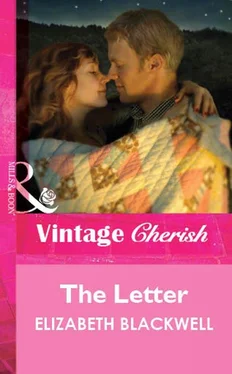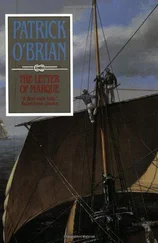The Letter
Elizabeth Blackwell

www.millsandboon.co.uk
To Mom, Dad and Rachel
For always listening
Chapter 1
Chapter 2
Chapter 3
Chapter 4
Chapter 5
Chapter 6
Chapter 7
Chapter 8
Chapter 9
Chapter 10
Chapter 11
Chapter 12
Chapter 13
Chapter 14
Chapter 15
Cassie
Dearest Lydia, my darling,
This is my last hope, because I am desperate. Desperately in love with you and desperate to understand what happened. You won’t see me, won’t write. Why? I thought you loved me and I loved you and that would be enough. Instead you keep secrets, you keep things hidden even from the people who love you. But whatever mistakes you made and whatever mistakes I made, none of it matters. I don’t care. All that matters is that I love you. I love you so much my heart aches whenever I think of you. My arms miss holding you, and my lips miss the feel of your soft skin.
I wonder if you know the depth of my love for you. Perhaps I never told you what you needed to hear. So consider this my last stand. I love you, I always will, and I would do anything to make you happy. If you want a new life for yourself, I will try to understand, because your happiness means more to me than my own. What happens next is your choice. If you no longer want me, I need to hear it from you, otherwise I’ll keep hoping. I’ll keep looking for you, because without you I’m lost.
I will always be yours,
F.B.
Cassie fingered the pale yellow paper, softened by age to the consistency of tissue. No envelope, no date, no signature. Just those mysterious initials at the bottom, and a passion that still burst from the page—despite the years that had obviously passed since it was written.
Dearest Lydia…
The letter had been well hidden, tucked away between layers of cloth in a box marked Quilting Supplies. A box Cassie had walked by countless times in the twenty years she’d lived in her grandparents’ house. A box that, before now, she’d never touched.
Cassie had always found Lydia’s quilting slightly embarrassing. The fact that her grandmother’s main accomplishment in life involved sewing together mismatched fabric remnants symbolized the gap between her and Cassie, the distance between Cassie’s professional ambition and Lydia’s old-fashioned housewife ways. At seventy-three, Lydia was a full decade younger than the grandparents of Cassie’s friends. But Lydia had always struck Cassie as old before her time, a woman who’d married her high school sweetheart and settled down by the age of twenty-one. A woman who was content to help out with her husband’s landscaping business but never had a life of her own. Other than college and one year studying abroad, she’d never traveled or experienced the world. She lived quietly with her quilts in the same house she’d grown up in, making no mark.
I wonder if you even know the depth of my love for you.
Cassie hastily refolded the letter into thirds and tucked it between the layers of cloth inside the box. She noticed her hand shaking as she hurriedly smoothed the fabric over the paper. Cassie had grown up believing that her grandfather was the only man Lydia had ever loved, her first and only boyfriend. But Henry Armstrong’s initials weren’t F.B.
Then there was the handwriting—words strung together frantically, with barely a space between, as if the letter had been written in one furious burst of energy. Henry took his time writing, meticulously tracing the shape of each letter, lifting his pen off the paper after each word before starting the next. His handwriting was as careful and measured as his speech, a far cry from the messy scrawl on the mysterious letter.
But the words were the real tipoff. Henry Armstrong—while he certainly loved his wife—didn’t talk like this. Cassie had never heard Henry tell Lydia he loved her. He acknowledged Lydia’s birthday with generic drugstore birthday cards, signing his name beneath the poem inside. He had to be nagged to add even the shortest greeting to Lydia’s annual Christmas letters. Henry didn’t express himself with words; he showed his love through action, whether it was stroking the head of his lonely young granddaughter or nurturing a tender plant in his beloved greenhouse.
This letter had been written by someone in pain. Someone literally sick with love for Lydia.
The Armstrongs weren’t ones for exchanging family stories over the dinner table; the past was only revisited occasionally, filled as it was with echoes of tragedy and regret. Cassie learned at an early age what was off limits. Her grandparents would talk willingly enough about their first dates, or what life used to be like in Knox Junction before the interstate highway arrived. Once in a while, Lydia would reminisce about the early days of her marriage, and Cassie would get a brief, precious glimpse of her father as a baby or young boy. But questions about Cassie’s parents—who had died when she was five years old, before she’d time to form anything more than impressions of them—were met with awkward silence. The past, she learned, meant pain. And the last thing Cassie wanted was to cause her grandparents any more heartbreak. They’d had enough.
The only safe memories, the only ones Cassie could ask about and get a smile, were the stories of Lydia and Henry’s courtship and marriage. By now, it had taken on the aura of a fairy tale in Cassie’s mind. They’d first met as children, when Lydia’s family moved to town, had their first date at a high school dance and married right after college. Henry, the quiet, steadfast farmer’s son, and Lydia, the artistic doctor’s daughter, might have been an unexpected match; Lydia had hinted that her parents didn’t approve of Henry at first. But love had triumphed in the end, and Lydia and Henry had eloped in France, where Lydia was taking college art courses. Paul, Cassie’s father, was born while they were traveling in Europe, and the young family returned home soon after.
Their brief European adventure over, they settled into their average, all-American lives. For the next fifty years, they had built a thriving business together, established a network of close friends with whom they organized bridge nights and potluck dinners, raised a son and later, a granddaughter. Now, in their seventies, they were local fixtures in town, a much-lauded example of a happy and long-lasting marriage.
Henry and Lydia’s story had made a powerful impact on the young Cassie, who grew up believing in the power of first love. But as she made her way unhappily through high school—where being smart disqualified her from popularity, and her frizzy hair and acne-prone skin only reinforced her brainy image—Cassie began to wonder whether her grandparents’ story was a fairy tale after all, the kind of thing that rarely ever happens in real life.
It wasn’t until college that she met her savior: Cooper Lynch, someone just as socially awkward and grade-obsessed as she was. Cooper’s home life couldn’t have been more different than hers—the middle child of three boys and two girls, he’d been raised in a large, raucous family—but like Cassie, he approached life as an outsider. The only way to stand out from his siblings, he’d decided at an early age, was to be smarter than them, and he’d concentrated on school to the exclusion of almost everything else. Cooper and Cassie had started out as “study buddies,” cramming for finals together late at night in the university library. They’d applied to law schools together and somehow both decided that the University of Chicago was their first choice. And when law school began and they were busier than ever, it seemed natural to find comfort in each other. Cooper understood Cassie’s drive, and he didn’t embarrass her with public displays of affection.
Читать дальше












